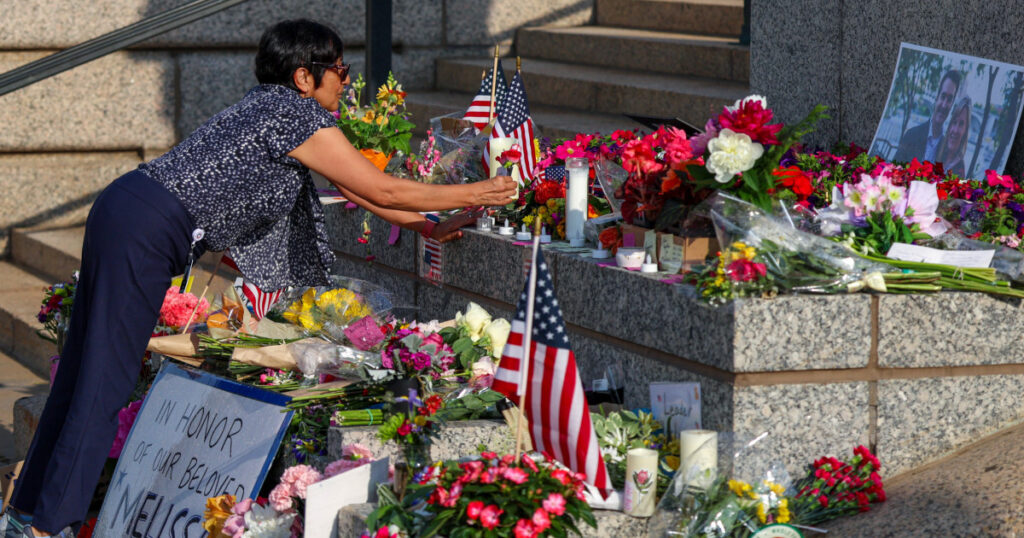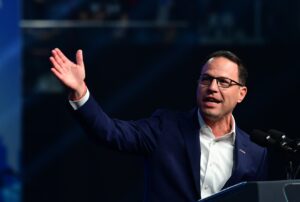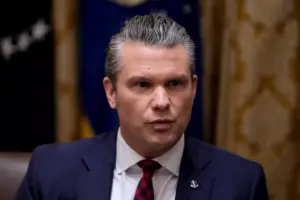
MINNEAPOLIS – Former Minnesota House Speaker Melissa Hortman was laid to rest alongside her husband on Saturday, following a tragic assassination that has sent shockwaves through the political community. The couple was killed in their Brooklyn Park home on June 14 in what authorities have described as a politically motivated attack.
Immediate Impact
The funeral service for Hortman, 55, and her husband, Mark Hortman, drew some of the nation’s most prominent figures, including former President Joe Biden and former Vice President Kamala Harris. Minnesota Governor Tim Walz also attended the service, which was held at the Basilica of St. Mary in Minneapolis and livestreamed for the public.
Key Details Emerge
The attack on the Hortmans was part of a series of planned political assaults. On the same day, Democratic State Senator John Hoffman and his wife were also targeted in their nearby home but survived. The suspect, Vance Boelter, 57, allegedly impersonated a law enforcement officer to gain access to the homes.
The shootings prompted the largest manhunt in Minnesota’s history, involving over 200 law enforcement officers.
Boelter, who has pleaded not guilty, was found two days later, armed and hiding in a rural field. Authorities discovered a notebook in his possession with a list of other political figures, particularly those supportive of abortion rights, spanning several states.
By the Numbers
- Over 200 law enforcement officers involved in the manhunt
- Politicians from five states listed as potential targets
- Hortman was the first woman to lie in state at the Minnesota Capitol
Background Context
Melissa Hortman, a Democrat, served as the Speaker of the Minnesota House of Representatives starting in 2019. Under a power-sharing agreement with Republicans earlier this year, she held the title of Speaker Emerita at the time of her death. Her leadership was marked by significant legislative achievements and a reputation for fierce advocacy.
Governor Walz, delivering a eulogy, highlighted Hortman’s impact, calling her “the most consequential speaker in Minnesota history.” He urged attendees to reflect on their political engagement in light of the tragedy.
Expert Analysis
Father Daniel Griffith, who led the funeral proceedings, emphasized the need for national healing, referencing Minnesota’s history with racial injustice and political violence. “Both of these must be decried in the strongest possible terms,” Griffith stated, linking the current climate to broader threats to democracy.
Regional Implications
The attack has united political leaders across party lines in condemnation. Former President Donald Trump and other top Republicans joined Democrats in denouncing the violence. The incident underscores a growing concern over political extremism and its impact on public safety.
What Comes Next
The legal proceedings against Boelter are expected to draw significant attention as authorities continue to investigate the broader implications of his actions. Meanwhile, the political community mourns the loss of a respected leader and the broader societal issues that the tragedy has brought to light.
In a statement, Boelter’s wife expressed shock and heartbreak over the events, emphasizing that the violence contradicts their family values. “We are appalled and horrified by what occurred, and our hearts are incredibly heavy for the victims of the unfathomable tragedy,” she said.
This development builds on a troubling trend of political violence in the United States, highlighting the urgent need for dialogue and reform to prevent future tragedies.






